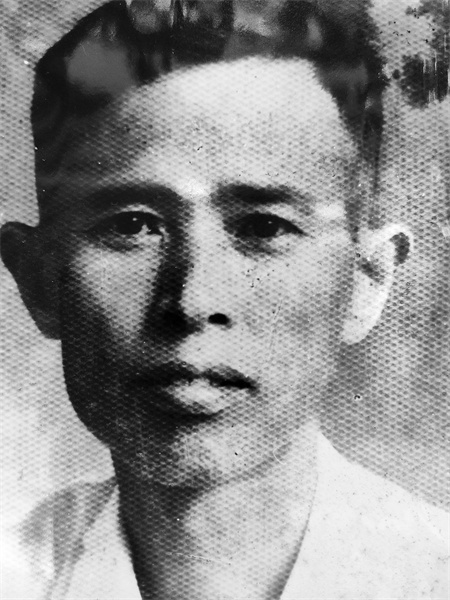

Pan recalls that her father rarely spoke of his past. He spoke the Taiwan Hakka dialect, could speak fluent Japanese from his university education in Japan, and his speech was a mix of various accents, which many in Sichuan couldn't understand, leading to limited interaction with others.
Nevertheless, he was a versatile individual, skilled in playing the violin; erhu, a two-string bowed musical instrument; the accordion and harmonica.
When Pan was in junior high school, her father was posted as a school doctor in a very remote mountainous area.
She remembers that whenever she visited him there, during sunsets she would find him sitting on the school's steps, playing the harmonica.
"He played a particular tune, the lyrics of which expressed his pain at being separated from his hometown in Taiwan. He was clearly homesick," she said.
After her father's passing, the family found some documents he had left behind, which indicated his family was from Taichung in Taiwan. It also indicated that his parents were teachers and came from very educated families.
They began looking for their relatives in Taiwan and, on finding them, invited them to the mainland. They had exchanged letters with the relatives on the island but had not told them about the passing of their father.
Only after arriving on the mainland did the relatives learn about her father's death after seeing his portrait and the urn containing his ashes. On seeing his brother's photo, her father's younger brother burst into tears. The brothers resembled each other so much.
The mainland relatives then traveled to Taiwan, expressing their wish to take their father's ashes to where he was born, as was his desire. All her uncles and aunts and Pan's cousins agreed, saying, "We will welcome him back home".
The family took Pan's father's ashes to Taiwan in 2010. It is customary for each family there to have a large tomb with several compartments in which to place the ashes of family members. Pan placed her father's ashes next to that of her grandparents and uncles.
Pan and her siblings decided to visit Taiwan every year during Qingming Festival, to pay respects to their father and other family members. Unfortunately, because of the tense cross-Strait relations in recent years, they have not been able to fulfill their wish.
Pan used to visit Taiwan at least once every year. She would travel around to understand people there better.
She would take with her small gifts for her relatives — mostly specialty products from Sichuan such as liquor, silk and Chinese medicinal herbs. Later, she started giving them red envelopes.
Her relatives were observing the improvement in her living standard and the rapid economic development on the mainland.
Realizing the importance of cross-Strait communication and mutual understanding for both sides, Pan has been promoting art and calligraphy exchanges between Sichuan and Taiwan's Pingtung, and other cross-Strait exchange activities over the past 10 years.
This initiative involves inviting Taiwan artists to Chengdu, capital of Sichuan, for sketching and painting, while mainland artists' work gets exhibited in Taiwan. This year, mainland artists are also preparing to visit the island.
During the Sichuan Provincial CPPCC meetings, Taiwan youth are invited to participate. They also participate in research tours to understand the development of the mainland, to increase their understanding of the mainland's political system and democratic procedures.
Many youth from Taiwan come to work in Sichuan, even participating in rural vitalization projects.
Some have helped villagers sell agricultural products through livestreaming e-commerce, while others have established motorcycle camping bases, introducing Taiwan's motorcycle culture to the local community.
Pan said that the youth from Taiwan have played a significant role in local development, and her role is to facilitate these connections.
Many Taiwan youth are also active on social media, sharing their experience about living in Chengdu. When they return to Taiwan, they document Taiwan's snacks, culinary specialties and cultural streets for their friends on the mainland.
Pan said this year's Government Work Report emphasizes the importance of cross-Strait integration in promoting the reunification of the motherland.
She said that faced with the complex Taiwan Strait situation, expanding cross-Strait exchanges is necessary, and only through greater interaction can both sides understand each other better.